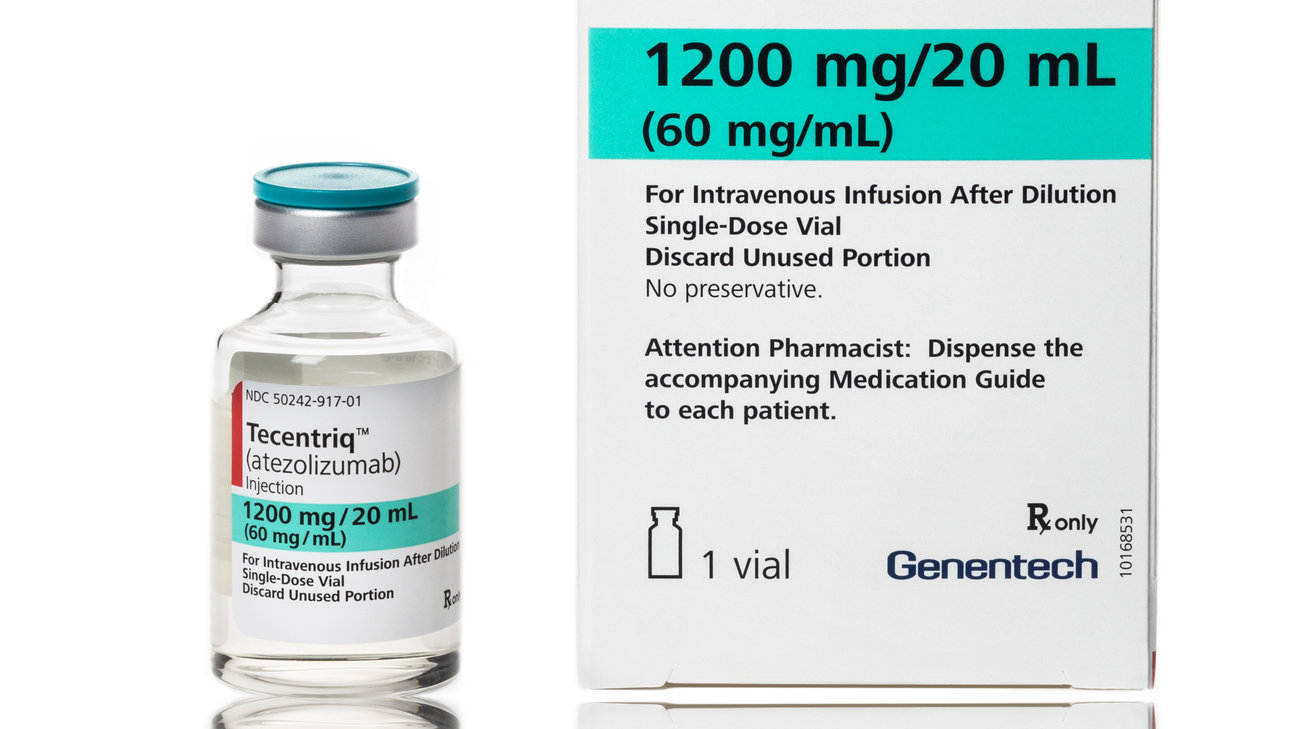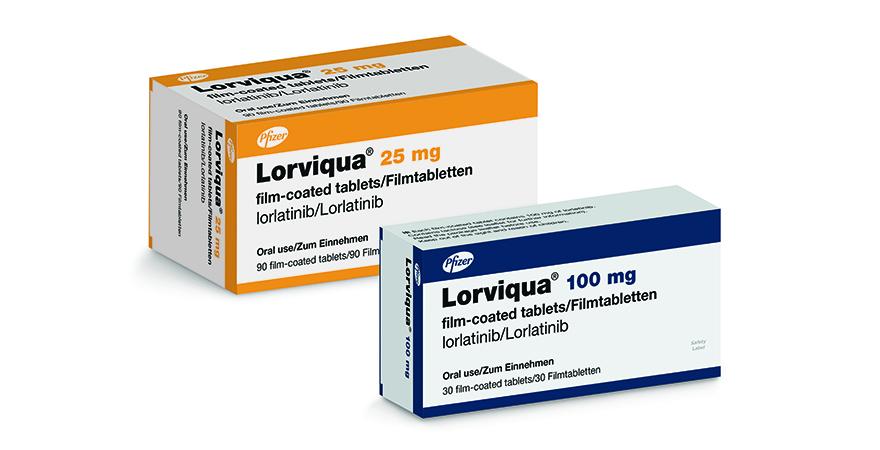Tecentriq (Atezolizumab) vs Lorviqua (lorlatinib)
Tecentriq (Atezolizumab) vs Lorviqua (lorlatinib)
Tecentriq (Atezolizumab) is an immune checkpoint inhibitor specifically designed to target and bind to the PD-L1 protein on tumor cells and immune cells, blocking its interactions and enabling the activation of T cells to detect and fight cancer cells. It is primarily used in the treatment of various types of cancer, including non-small cell lung cancer (NSCLC), urothelial carcinoma, and triple-negative breast cancer. In contrast, Lorbrena (lorlatinib), which is sometimes mistakenly referred to as Lorviqua, is a third-generation anaplastic lymphoma kinase (ALK) inhibitor used to treat patients with ALK-positive metastatic NSCLC, particularly those who have progressed on other ALK inhibitors. When deciding between these two medications, it is essential to consider the specific type of cancer and its molecular characteristics, as Tecentriq is used for a broader range of cancers, while Lorbrena is specifically for ALK-positive NSCLC patients. The choice of treatment should be made in consultation with an oncologist, who can evaluate the patient's individual condition, previous treatments, and the specific genetic mutations of the cancer, ensuring the most appropriate and effective therapy is selected.
Difference between Tecentriq and Lorviqua
| Metric | Tecentriq (Atezolizumab) | Lorviqua (lorlatinib) |
|---|---|---|
| Generic name | Atezolizumab | lorlatinib |
| Indications | Urothelial carcinoma, non-small cell lung cancer, triple-negative breast cancer | ALK-positive metastatic non-small cell lung cancer |
| Mechanism of action | PD-L1 inhibitor, immune checkpoint inhibitor | ALK and ROS1 tyrosine kinase inhibitor |
| Brand names | Tecentriq | Lorviqua |
| Administrative route | IV infusion | Oral |
| Side effects | Fatigue, nausea, decreased appetite, urinary tract infections, fever | Edema, peripheral neuropathy, cognitive effects, dyspnea, weight gain |
| Contraindications | None known beyond hypersensitivity to atezolizumab or its components | None known beyond hypersensitivity to lorlatinib or its components |
| Drug class | Monoclonal antibody, immune checkpoint inhibitor | Tyrosine kinase inhibitor |
| Manufacturer | Genentech (Roche) | Pfizer |
Efficacy
Efficacy of Tecentriq (Atezolizumab) in Lung Cancer
Tecentriq (Atezolizumab) is an immunotherapy drug that has shown efficacy in the treatment of certain types of lung cancer. Specifically, it has been approved for use in patients with non-small cell lung cancer (NSCLC) that has metastasized and whose tumors express PD-L1, as determined by an FDA-approved test, without EGFR or ALK genomic tumor aberrations. Atezolizumab works by targeting the PD-L1 protein on the surface of cancer cells, thereby enabling the immune system to recognize and destroy them. Clinical trials have demonstrated that Atezolizumab can lead to longer progression-free survival and overall survival in some patients with advanced NSCLC compared to chemotherapy alone.
In addition to its use as a monotherapy, Tecentriq has also been studied in combination with other cancer treatments. For instance, when used in combination with bevacizumab, paclitaxel, and carboplatin for the initial treatment of metastatic non-squamous NSCLC, it has shown a significant improvement in overall survival and progression-free survival compared to chemotherapy alone. These findings suggest that Atezolizumab can be an important part of a combination regimen for treating lung cancer.
Efficacy of Lorviqua (lorlatinib) in Lung Cancer
Lorviqua (lorlatinib) is a third-generation anaplastic lymphoma kinase (ALK) inhibitor used to treat patients with ALK-positive metastatic NSCLC. It is specifically designed to target and inhibit the activity of the ALK protein, which can drive the growth of cancer cells in some lung cancers. Lorlatinib has been shown to be effective in patients who have progressed on prior ALK inhibitors, indicating its potency against ALK-positive NSCLC, even in cases where the cancer has developed resistance to other ALK-targeted therapies.
Clinical trials have shown that Lorlatinib is effective in inducing a response in a significant proportion of patients with ALK-positive metastatic NSCLC, including those with central nervous system (CNS) metastases. The drug has demonstrated a high intracranial response rate, which is particularly important given the frequency of brain metastases in ALK-positive NSCLC patients. Lorlatinib's efficacy in controlling disease progression has made it a valuable treatment option for this specific patient population, offering hope for improved outcomes even in advanced stages of the disease.
Regulatory Agency Approvals
Tecentriq
-
European Medical Agency (EMA), European Union

-
Food and Drug Administration (FDA), USA

-
Health Canada

-
Pharmaceuticals and Medical Devices Agency (PMDA), Japan

-
Therapeutic Goods Administration (TGA), Australia

-
Medsafe (NZ)

Lorviqua
-
European Medical Agency (EMA), European Union

-
Food and Drug Administration (FDA), USA

-
Health Canada

-
Therapeutic Goods Administration (TGA), Australia

Access Tecentriq or Lorviqua today
If Tecentriq or Lorviqua are not approved or available in your country (e.g. due to supply issues), you can access them via Everyone.org.
How it works

Make an enquiry
Choose the medicine you want to buy, answer a couple of questions, and upload your prescription to speed things up. We’ll get back to you within 24 hours.


Make an enquiry
Choose the medicine you want to buy, answer a couple of questions, and upload your prescription to speed things up. We’ll get back to you within 24 hours.


Breeze through the paperwork
We'll guide you through the required documents for importing unapproved medicine, ensuring you have all the necessary information.


Get a personalized quote
We’ll prepare a quote for you, including medicine costs and any shipping, administrative, or import fees that may apply.


Receive your medicine
Accept the quote and we’ll handle the rest - sourcing and safely delivering your medicine.

Some text on this page has been automatically generated. Speak to your physician before you start a new treatment or medication.
Let's talk
If you have any questions, call us or send us a message through WhatsApp or email:
Contact us




